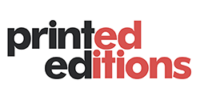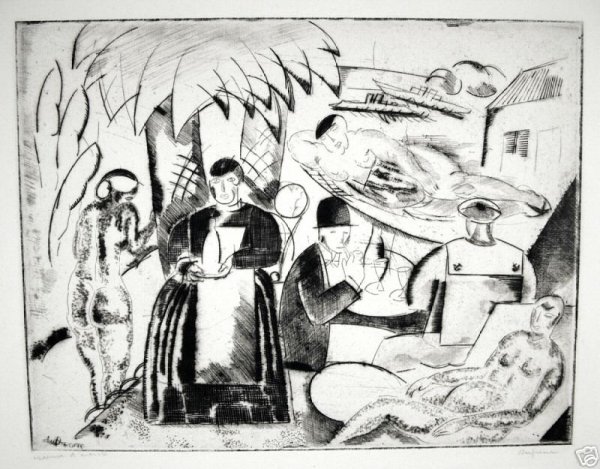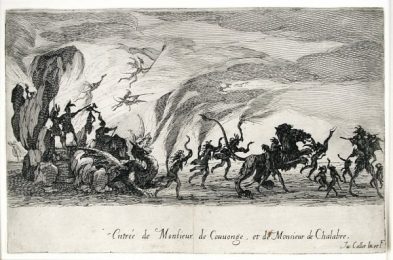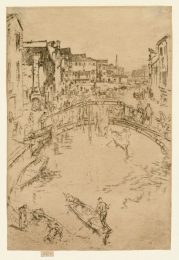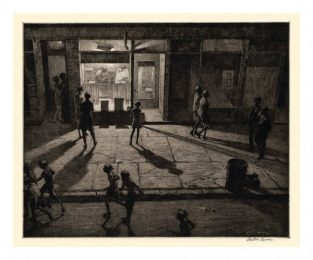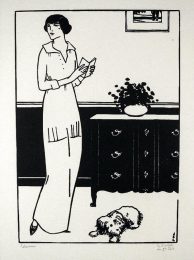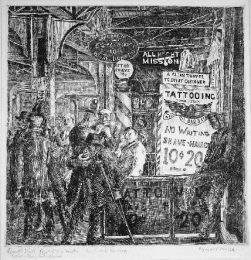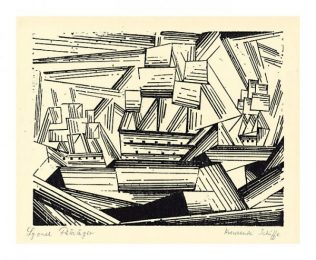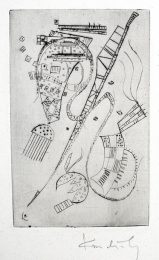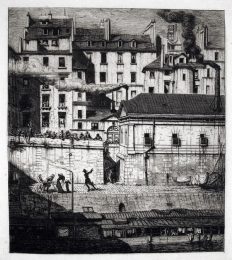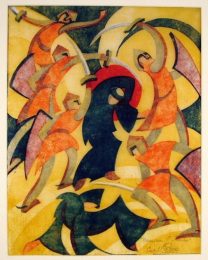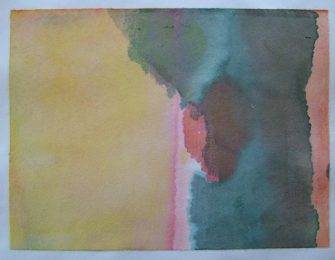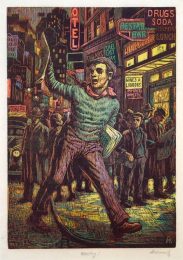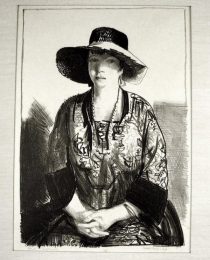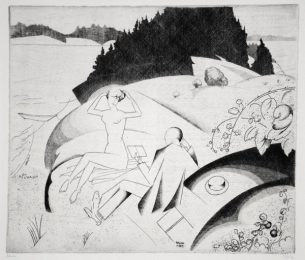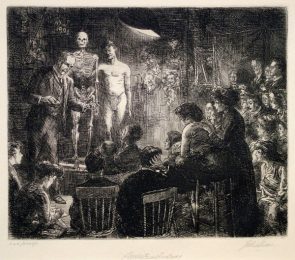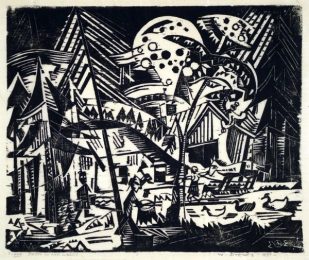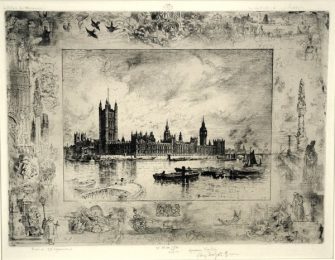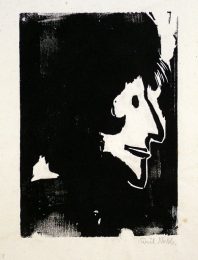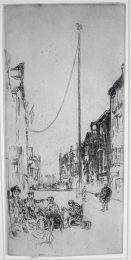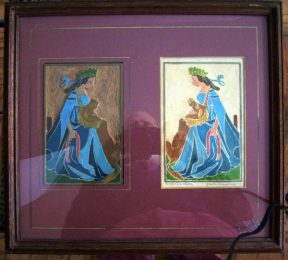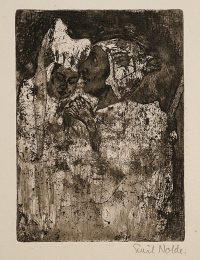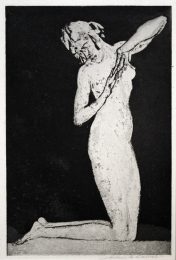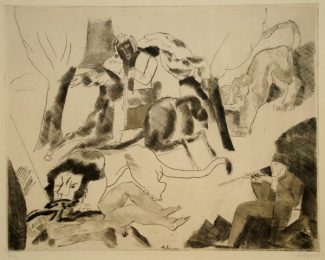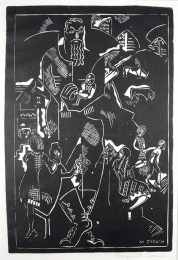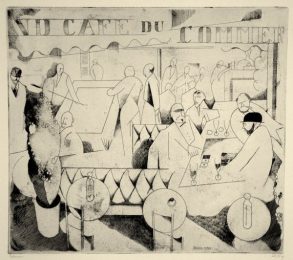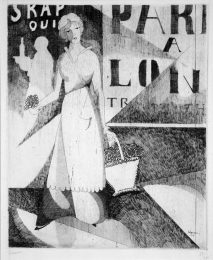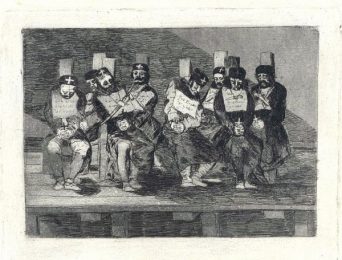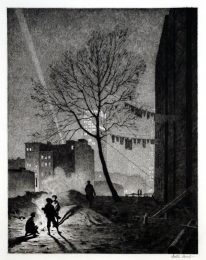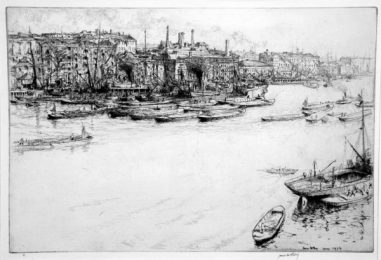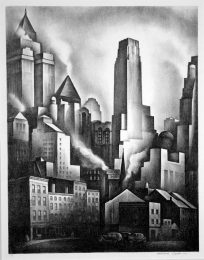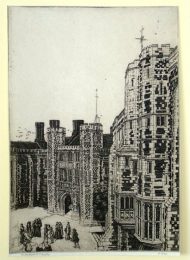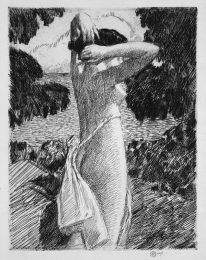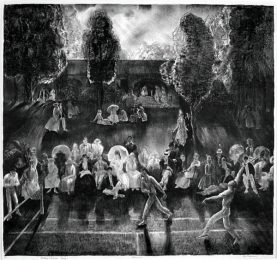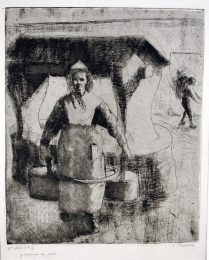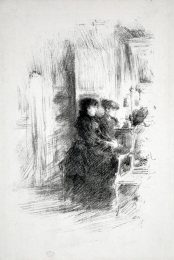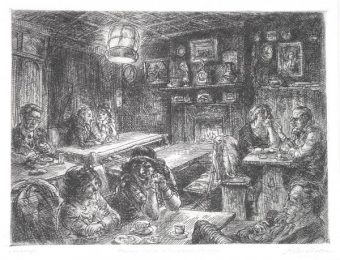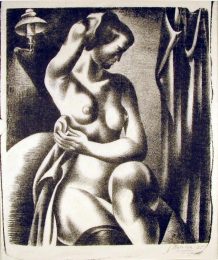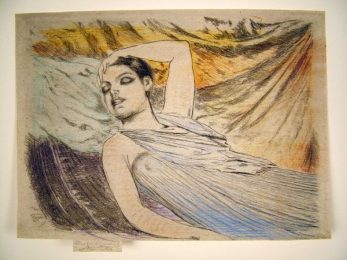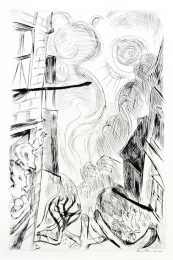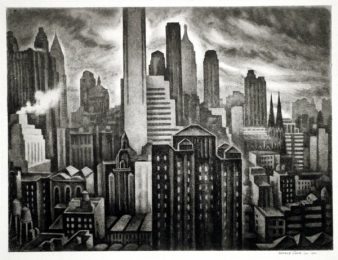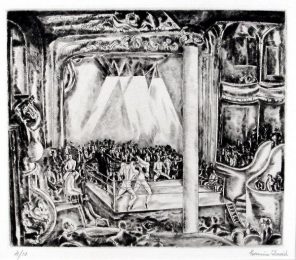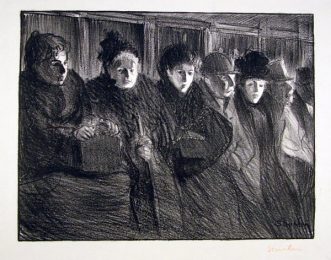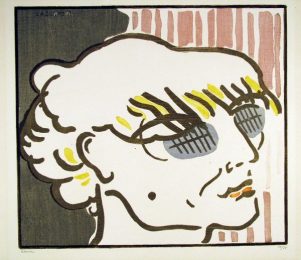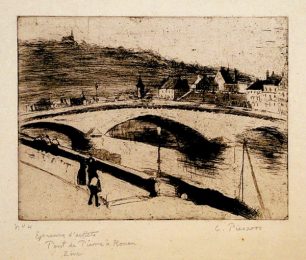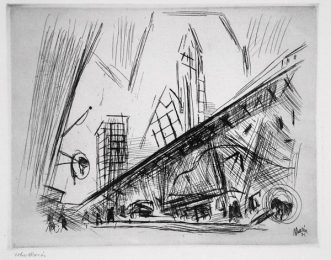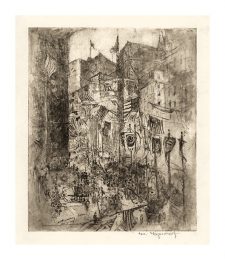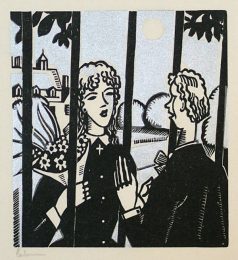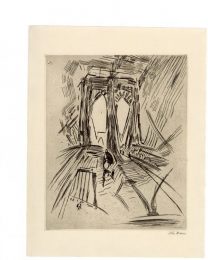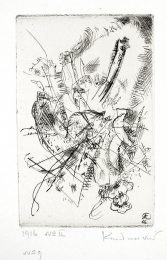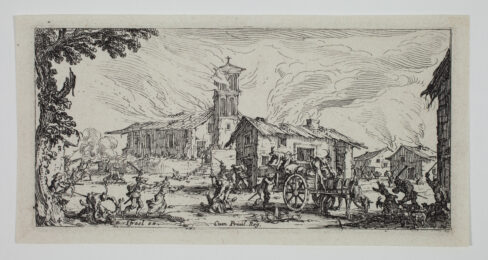Details — Click to read
Charles Dufresne (1876-1938), Une Escale au Brasil (A Stopover in Brazil), etching and drypoint, c. 1920, signed in pencil lower right margin and inscribed “epreuve de artist” lower left. Reference: Thomas Dufresne 35. Edition of only 25. In very good condition, with full margins on a cream wove paper, with the watermark Van Gelder Zonen and also Alfred Porcabeuf (?), 9 1/8 x 12, the sheet 12 1/2 x 18 inches, archival matting.
A fine impression of this artist’s proof, printed in black ink.
Dufresne used techniques beyond etching and drypoint here, perhaps softground etching and a piercing tool too for dotting effects.
Une Escale was first exhibited at the Paris Salon de la Societe Nationale des Beaux Arts in 1921, where it caused much comment regarding both its marvelous composition, and its subject matter – it led to much speculation about the artist (e.g., what’s he doing in Brazil? What is the meaning of the composition – the well-dressed fop at the table (presumably the artist); the sailor and largish waitress, and the nude women lounging or standing about? Dufresne’s stunning composition in Une Escale shows the influence of cubism and the Parisian School – after all he was born in France and studied at the Ecole des Beaux Arts – but it also shows the influence of the years he spent in Africa, and his origins as part of a seafaring family. In 1910 won the Prix de l’Afrique du Nord and then spent two years in Algeria, which stirred his interest in exoticism and lyricism.
